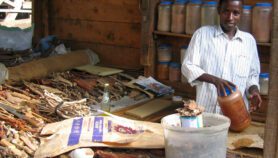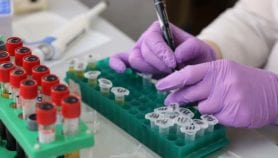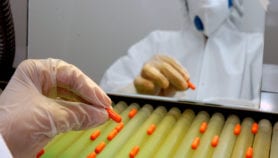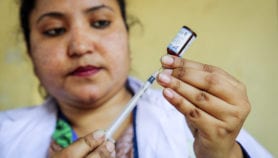By: Tharaka Gamage
Send to a friend
The details you provide on this page will not be used to send unsolicited email, and will not be sold to a 3rd party. See privacy policy.
[COLOMBO] Sri Lanka has embarked on an ambitious nanotechnology drive to boost its economy by maximising benefits from its traditional exports, such as rubber.
The Sri Lanka Institute of Nanotechnology (SLINTEC), in Colombo — set up with 750 million Sri Lankan rupees (US$6.8 million) in 2008 as a public–private partnership to boost nanotechnology research and development — has applied for five international patents from the United States Patent and Trademark Office for nanotech products in its first year of operation. The average number of yearly patents awarded to Sri Lanka from the US office has been less than two over the past 15 years.
Until now, Sri Lanka has been "inept in getting significant benefits for national development from any technological trends that changed the world", Sirimalee Fernando, chair of the National Science Foundation in Colombo, told SciDev.Net.
The government is now attempting to stem this lag in emerging technologies. Its first national science policy, released in July 2009, emphasised that nanotechnology can play a crucial role in development.
The plan is to use nanotechnology to improve domestic crop production and raise the quality of key exports, such as rubber and textiles, while maintaining the country’s lead in these sectors, said Ajith de Alwis, science team leader at SLINTEC.
Veranja Karunaratne,another science team leader at SLINTEC, told SciDev.Net that Sri Lankan companies need high-quality products to compete in the global market. "We use nanotechnology to shape up their products and enhance the quality," he said.
Among the five patents are SLINTEC’s two techniques for the slow release of nitrogen from fertilisers to stop it being washed away by rain or degraded by microbes. Up to 70 per cent of nitrogen from fertilisers is usually wasted in this way, but the nanotech approach cuts wastage to just ten per cent, SLINTEC scientists said. The findings from small-scale tests are now being validated in larger trials.
The country has long relied on the export of rubber, but there is now increasing focus on using nanotechnology to improve the performance of natural rubber products and make better products, such as tyres.
The institute is planning to submit two more patents soon.
Sri Lanka is exploring various routes to realise its nanotech ambitions in case public–private funding dries up, said Rohan Munasinghe, a member of the National Nanotechnology Committee. These include inviting more local and foreign experts to work at SLINTEC, and ensuring greater collaboration with foreign institutes.













